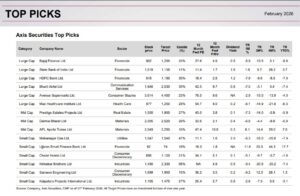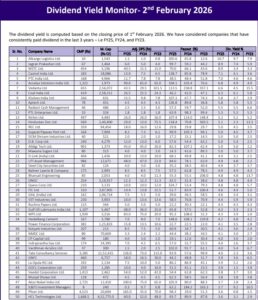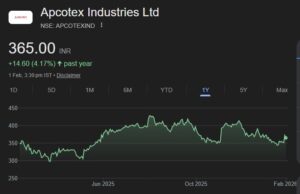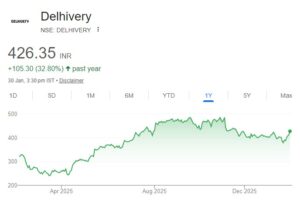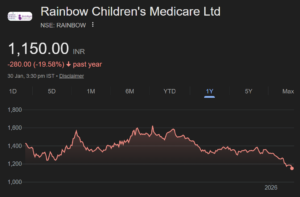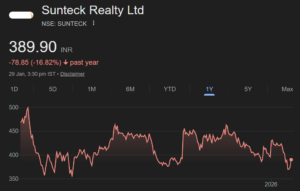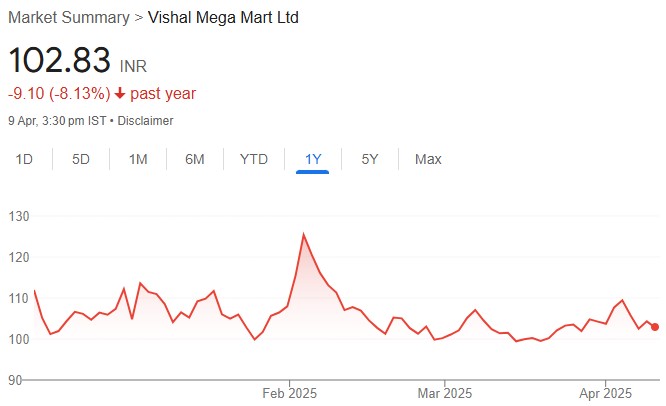
Vishal Mega Mart’s (VMM) private label strategy in FMCG (~27% of revenue) has been important for its success story, redefining value for consumers. Our primary research outcomes: 1) High presence of large-pack SKUs and 2) reputed manufacturers for its private label brands. Both these features imply its focus on consumers seeking true value in FMCG by purchasing large packs private label brands without compromising on quality. Importantly, this allows VMM to acquire new consumers for its other more profitable categories (apparel and general merchandise). With its valuepricing strategy, led by focus on private labels (~73% salience), lean cost structures, efficient supply chain and loyal customer base, VMM is well placed for sustained profitable growth. BUY
Successful private label strategy in FMCG unlike peers
Our on-ground checks suggest VMM has got its private label strategy in FMCG (~27% of revenue) right, providing value to its customers, a key driver for its footfalls and new customer acquisition for other segments (general merchandise and apparel). We noticed two unique features in its FMCG segment: a) SKUs were mostly large packs meant for monthly/longer consumption at competitive prices implying focus on consumers seeking value, and b) reputed manufacturers (specifically in foods) for its private label brands provide quality assurance to its customers, a key driver for private label adoption. These reasons, in our view, are key drivers for VMM’s private label success in FMCG, implying higher salience (~30%) and relatively higher gross margin vs peers in FMCG retail.
Focus on private label in FMCG unlike most value retailers
VMM is focused on targeting middle class population while retail industry is witnessing a shift towards organised retail including quick commerce. Most players having presence in organised FMCG retail have had low salience of private label. On the other hand, VMM has had relatively higher salience of private label (~40%). This is largely due to VMM’s strategy to provide value through private label brands. VMM currently has opportunity to improve scale further to negotiate better terms of trade from branded FMCG players when compared to larger peers (DMart, Reliance Retail), but it focused on private labels to provide value to customers (refer Exhibit 7).
Reputed manufacturers for private label provide quality assurance to value-seeking customers
In order to provide quality assurance while providing value to its customers it partnered with reputed manufacturers across categories. For e.g.: 1) Private label coffee brand ‘Full Bloom’ is being manufactured by CCL Products (India) Limited which was established in 1994 and is the largest exporter of instant coffee and a leading private label manufacturer worldwide. 2) Private Label tea brand ‘Full Bloom’ is being manufactured by Goodricke which is the second largest tea producer in India. 3) Private label biscuits brand ‘First Crop’ is being manufactured by United Biscuits Pvt Ltd, now a part of Pladis Global, a British multinational food manufacturer, best known for brands like McVitie’s, Jacob’s Cream Crackers and Twiglets. 4) Private Label namkeen brand ‘First Crop’ is being manufactured by Bikanervala Foods Pvt. Ltd., a prominent player in Indian sweets and snacks. 5) Private label instant noodles brand ‘First Crop’ is being manufactured by Indo Nissin Foods Pvt. Ltd., which invented instant noodles and is the owner of Top Ramen. 6) Private label honey brand ‘Full Bloom’ is being manufactured by Apis India which owns honey brand ‘Apis’.
Presence of reputed manufacturers in FMCG products provides quality assurance and adoption of private labels by customers seeking value. Experienced manufacturers provide end-to-end services, including product design, sourcing production, quality control and similar branded packaging. This expertise helps VMM to streamline its processes.
Valuation and risks
Our earnings estimates are unchanged, modelling in revenue/ EBITDA/PAT CAGR of 19%/20%/29% over FY24-27E. Maintain BUY with DCF-based unchanged target price of INR 140. Key risks: Slower than expected store addition and SSSG, exit of key managerial personnel and customer shifting towards convenience (quick commerce as ot pivots and scales on value).
